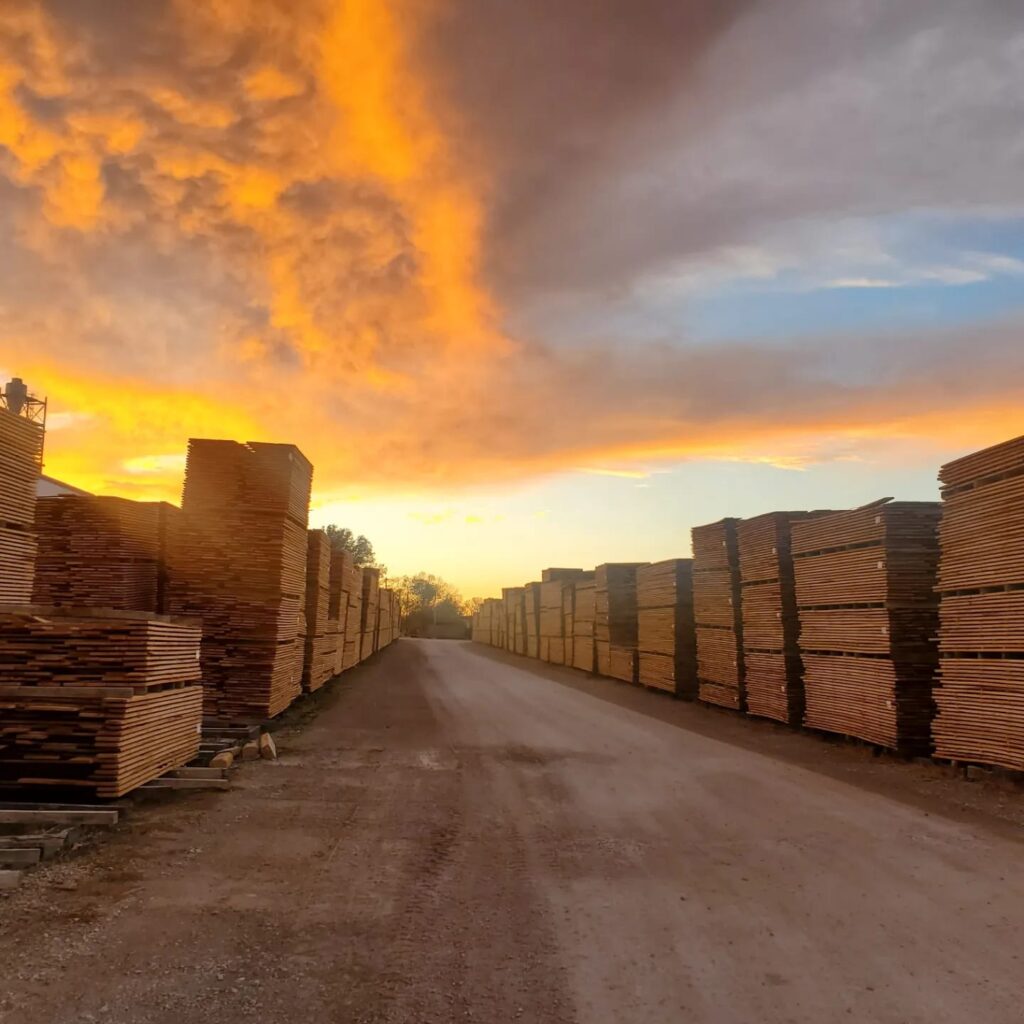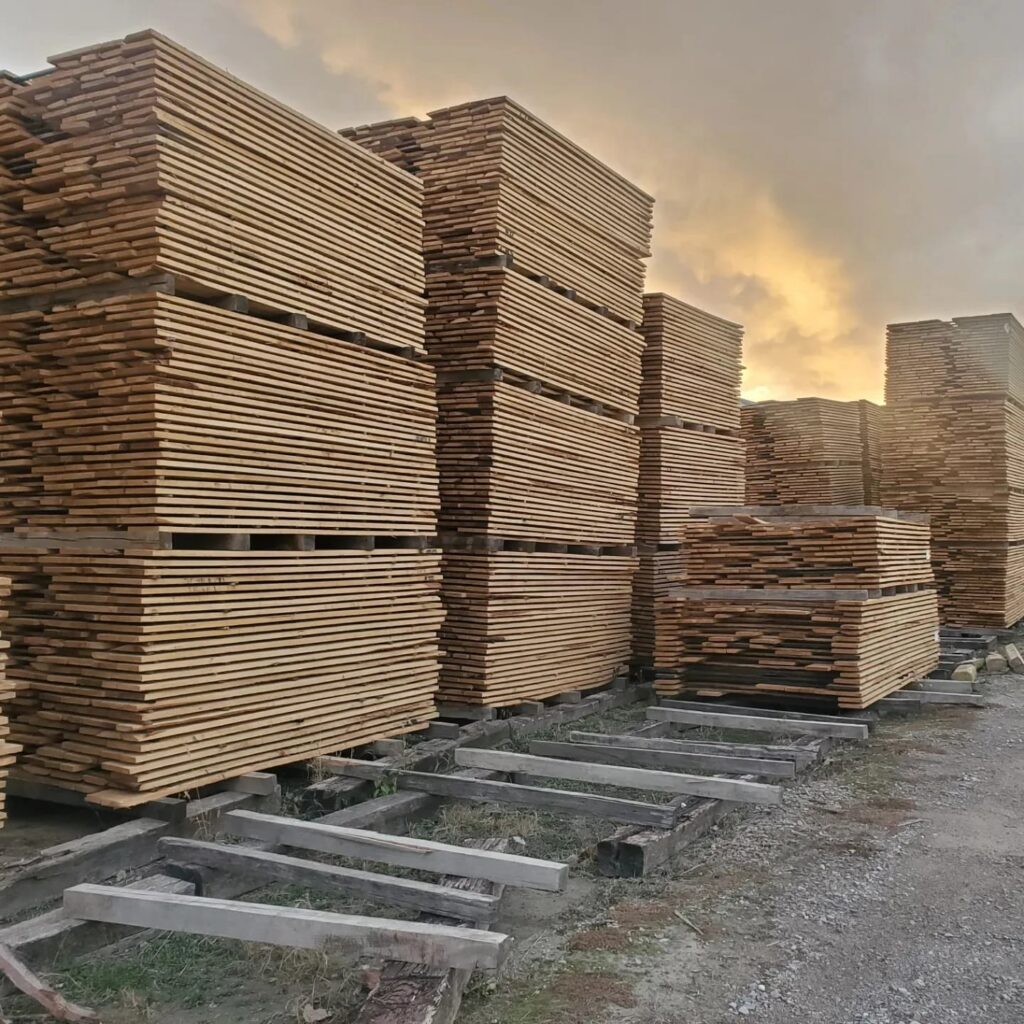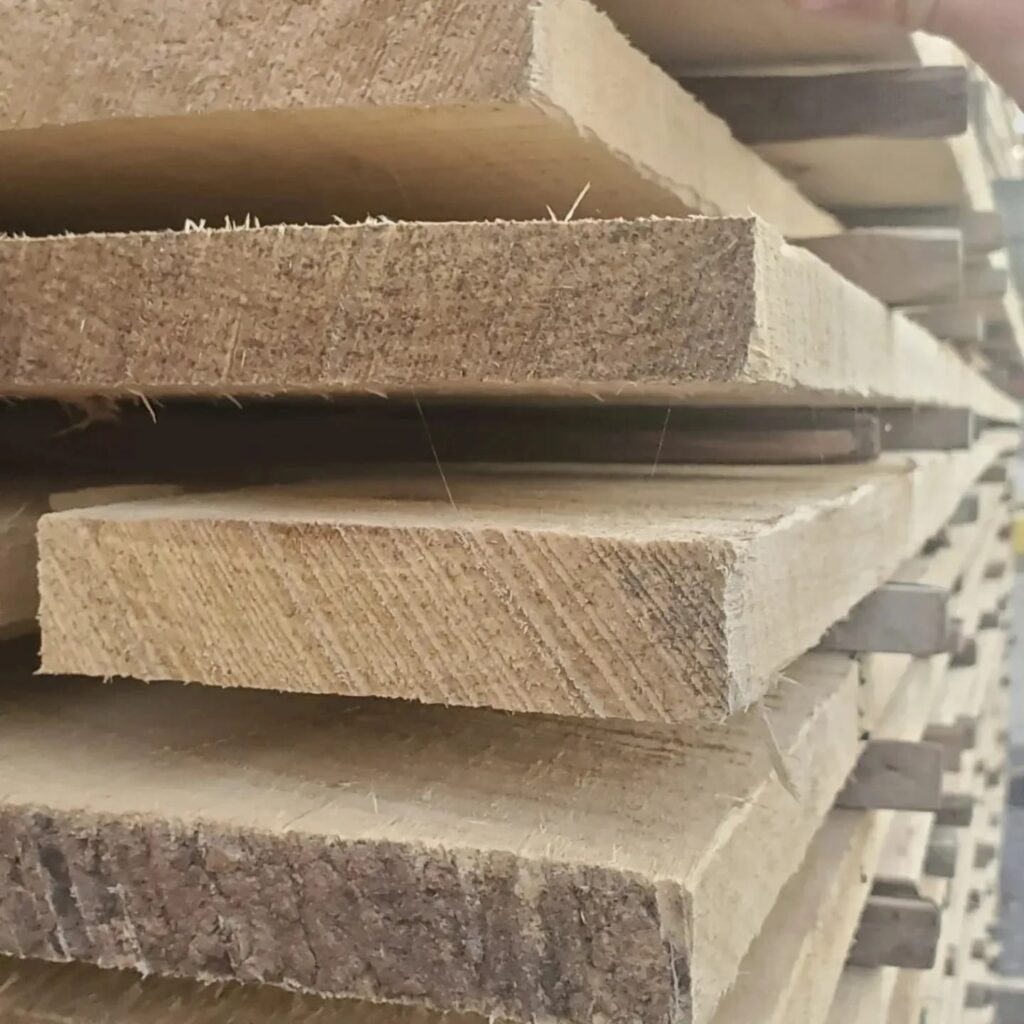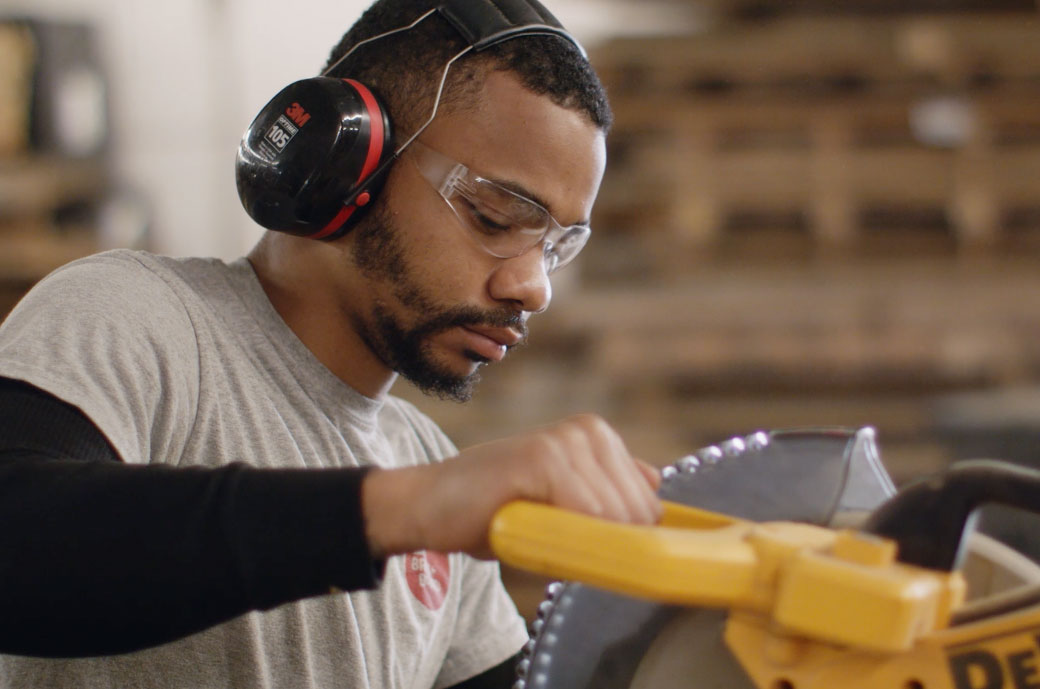Scaling Urban and Community Wood in Memphis
From Trash to Treasure
© Photo by #forestproud
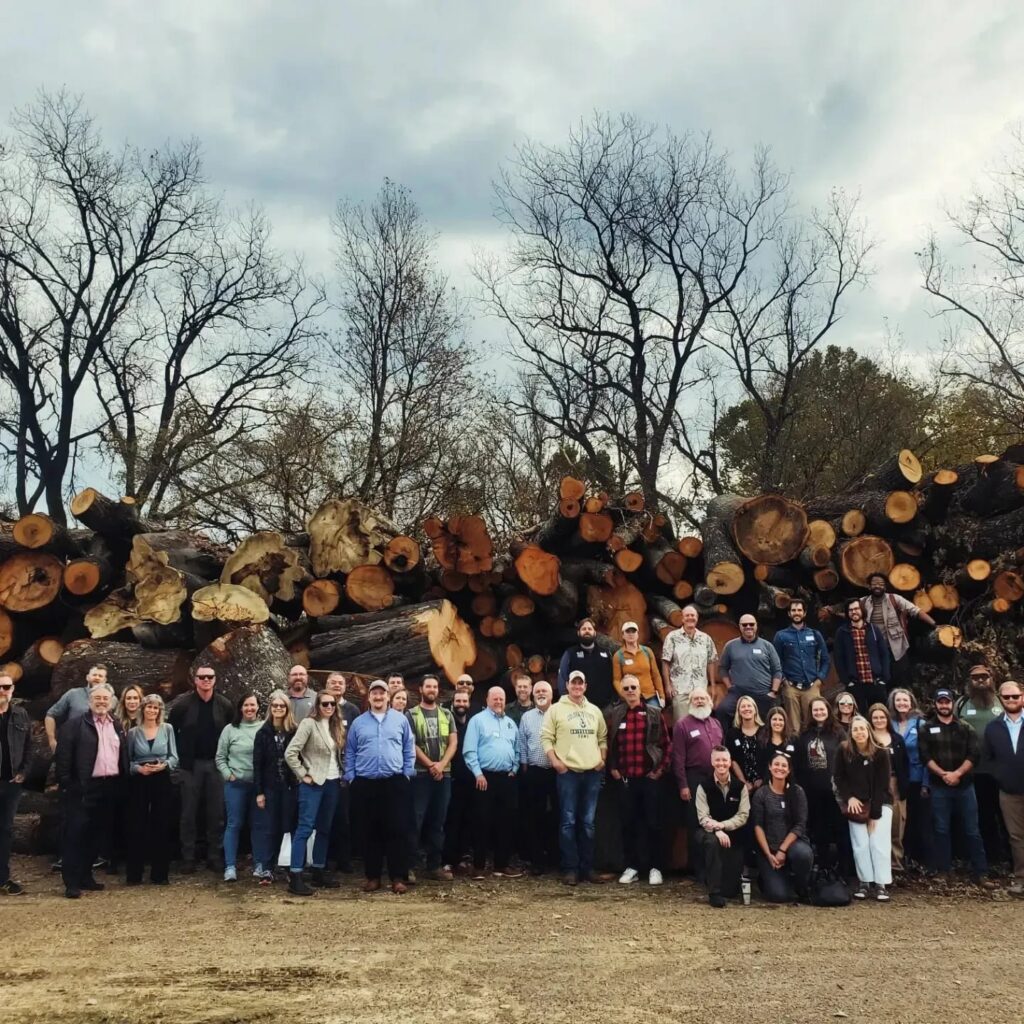 In November 2023, Memphis Urban Wood Academy participants focused on what makes urban and community wood uniquely scalable in Tennessee. The event took place at the heart of the Memphis Botanical Gardens and was full of dedicated practitioners working on solutions to divert urban and community wood from the waste stream into circular, regional bio-economies.
In November 2023, Memphis Urban Wood Academy participants focused on what makes urban and community wood uniquely scalable in Tennessee. The event took place at the heart of the Memphis Botanical Gardens and was full of dedicated practitioners working on solutions to divert urban and community wood from the waste stream into circular, regional bio-economies.
What to Do with Woody Waste
Regional variation in geography, tree species, natural disasters, and the wildland-urban interfaces add complexity to forest management across the nation; in urban and community settings, the social, cultural, and legal dynamics add additional complexity to the question of what to do with wood waste. Finding viable solutions to this problem was at the heart of the November 2023 meeting of the Memphis Urban Wood Academy.
Charlie Becker, USDA Forest Service (Forest Service), discussed the importance of municipal tree inventories and canopy assessments to determine how much wood will be generated in the future in the face of aging, diseased, and damaged trees and trends in storm damage and debris distribution. Ashley Kite-Rowland, Tennessee’s urban and community forestry coordinator, emphasized the need to develop urban wood management plans in partnership with solid waste departments and emergency response strike teams as well as local arborists and businesses.
Making Urban and Community Wood Profitable
Local impact and collaboration are at the core of urban and community wood’s potential. Participants toured the pilot site in the Klondike neighborhood where the Memphis Urban Wood Project, an initiative aimed at building a zero-waste urban tree site, is ramping up. This pilot site plans to accept fallen wood from local arborists and in the future, it may also accept storm debris as part of an emergency management post-disaster response. Local staff, hired at far above the annual median neighborhood income of $15,000, will help sort and process the wood and woody debris into the most viable products for resale. At a minimum, this includes lumber, wood slabs, and compost production. This work will be done on-site as a regional processing hub with a zero-waste goal and revenue generating model.
The Memphis Urban Wood Project is a combined effort of the Urban Wood Economy, Inc., and The Works, Inc. Roshun Austin, CEO and President of The Works, Inc., emphasized the need to build relationships with business owners, companies, entrepreneurs, local nonprofits, government organizations, and community members. Workforce development is a key element of this scaled model. It requires investment in local economies and individuals by offering wrap-around workforce development and training to a workforce that has not historically had an on-ramp to the forestry sector.
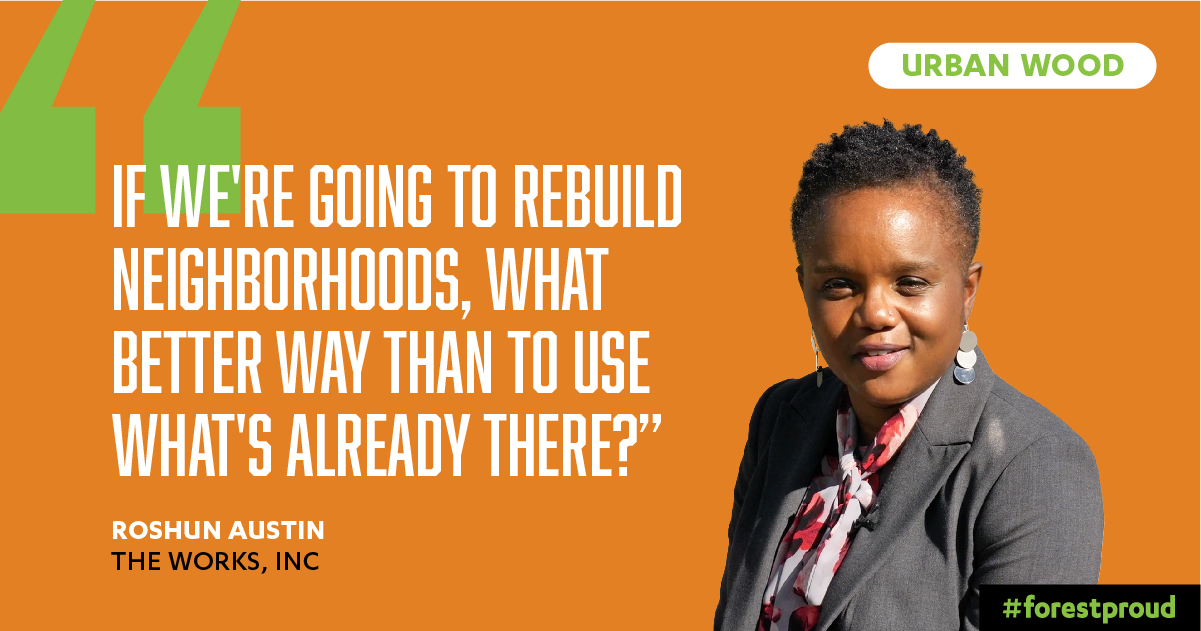
By scaling and piloting different models to connect urban and community wood with viable markets, the wider forestry sector can lead with purpose and commitment to advance climate action and social equity. In the words of Jeff Carroll, the CEO and co-founder of the Urban Wood Economy, Inc., “urban wood is an opportunity, not just a commodity.”
A huge “thank you!” for the leadership and funding support the Forest Service and Cal Fire invested in the last two Urban and Community Wood Academies. The efforts of Urban Wood Economy, Inc. (organizer) and dozens of wood utilization experts and advocates were central to the Academy experiences and inspirations.
Rae Tamblyn is the associate director of #forestproud at the Society of American Foresters. Jen Judd is the director of partnerships and outreach for Urban Wood Economy, Inc. This article was originally written for and appears in the Society of American Foresters Forestry Source, April 2024.
New to the urban forestry conversation? Check out our series on what the urban forests is, why it matters, why we measure it, and why we are #forestproud to see it grow.
Unfamiliar with the urban wood conversation? Check out our series on what urban wood is, why it matters, and what we are doing to turn waste to wealth, trash to treasure.
Take a Deep Dive! In December 2022, the CA Urban Wood Academy was held but space was limited. The range of topics and expertise at the Academy was so valuable that CAL FIRE and the USDA Forest Service provided funding to capture the educational highlights. We're pleased to share a full 6.5 hours of FREE high-quality educational content, cut down and packaged into a virtual workshop learning experience via a series of presentations, hosted on SAF ForestEd. This workshop lecture series offers the opportunity to earn 5.5 SAF and ISA continuing education credits. This free virtual workshop is for anyone looking to build or refresh knowledge around urban wood utilization and how the wood product supply chain is key to making significant environmental, social and economic impacts on communities of all sizes. The information presented here ties together urban and community forest management, plans for reducing tree waste, scaling up urban wood utilization and production, creating zero-waste biomass campuses, and connecting to the demand-side of the marketplace.

